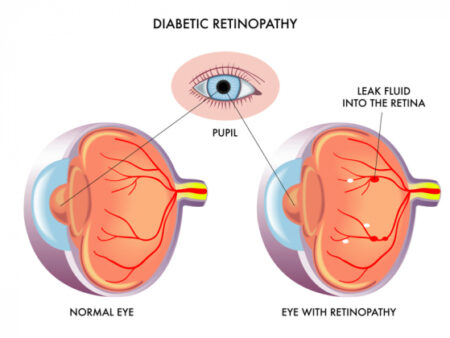Diabetes mellitus (DM), is the term used to describe a group of metabolic disorders characterized by high blood glucose levels. According to the International Diabetes Federation (IDF) the global prevalence of adults between the ages of 20-79, living with diabetes as of 2017 was, 425 million. The number rose to 451 million when the age group was expanded to 18-99 years.
They have projected an increase in figures to 629 million people and 693 million people respectively by the year 2045. They further stated that 49.7% of the people living with diabetes, as of 2017, were not diagnosed. Furthermore, they reported that, 79% of the people living with diabetes lived in low-and middle-income countries (LMIC). Again, IDF reported that, some 727 -850 billion USD was spent on diabetes in 2017 globally and by 2045, this figure will rise to between 776 and 958 billion USD.

Diabetes affects vital organs in the body, including the eye. One third of the people living with diabetes have some form of eye disease. Another 30% to 35% of these people end up with sight threatening eye disease. Seventy-five percent of those living with DR live in LMIC. Thus, focusing on LMIC in the global fight against Diabetic Retinopathy (DR) cannot be overemphasized.
According to current data on diabetic retinopathy, all individuals who have lived with type 1 diabetes for 20 years and 60% of type 2 diabetics will have some form of DR.
Evidence shows that, blindness due to DR can be tackled at three levels. These include prevention at the primary level, secondary level and the tertiary level. At the primary level, the focus is on prevention of the disease affecting the eye through health education for example. The secondary level involves monitory DR to prevent progression mainly through screening and the tertiary level focuses on preventing blindness by treating blinding diabetic macular oedema (DMO) and proliferative diabetic retinopathy (PDR).
ICEID provides services that are geared towards all three levels of the prevention of blindness due to diabetes.
Get in touch with us for more details.

